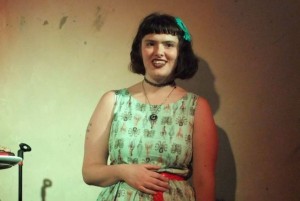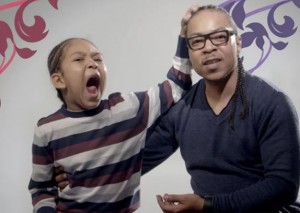Media reporting of crime and autism: Amaze says it's time to face the facts
Posted on
Amaze, like all of Melbourne, was shocked and saddened to hear of the recent murder of Eurydice Dixon in Carlton North.
Media reporting that the alleged perpetrator of this crime is autistic adds nothing to the story and is not necessary in the reporting of the story.
Furthermore the references of autism being a mental illness is fundamentally incorrect.
The alleged crime has nothing to do with the alleged perpetrator being autistic. The fact is that autistic people are far more likely to be the victims of crime.

Following is a Guardian article from Louise Milligan, where she writes that autistic people are far more likely to be victims of crime than offenders.
You think autistic people have no empathy? My little boy is so empathetic it hurts.
You clench your jaw. In the pit of your stomach, there’s that familiar sinking feeling.
You are reading an article, having a conversation, listening to the radio. And suddenly someone drops the A-bomb: autistic. “Brace yourself,” thinks you, the weary autism parent. “Breathe deeply.”
With the worryingly rapid rise of diagnoses in autism across the world over the past couple of decades comes another tedious phenomenon: the casual use of the word “autistic” to describe behaviour by people who, frankly, don’t know a lot about autism.
I have a little boy who is eight and he is what is known as being “on the autism spectrum”. And every time I look into his big eyes my heart explodes, with love, into a million little shards. I’m terribly biased that way.
Since my boy got his diagnosis, I flinch every time I hear these assumptions about someone who is a bit geeky having Asperger’s, or about someone’s misanthropy in the workplace meaning they are “on the spectrum”, or the idea that all autistic people can reel off complicated long division or recite Qantas flight schedules like Rain Man.
What’s his special talent?” people often ask me of my boy, assuming all autistic people are savants.
And then there are those really awesome people who think they are the only ones who “get him” and congratulate themselves on their miraculous powers of understanding, their “special connection”.
And so it was with a weary heart that I read a piece in the Guardian by Richard Watson. It started off innocuously enough: a premise that “relatively young white males overwhelmingly run Silicon Valley firms and they are stealing the future from everyone else” by controlling the algorithms of the trending news on social media.
But then Watson went one step further:
“Many of the men behind these hugely powerful corporations seem to know very little or care even less about other people.
This is a bold claim, but it may have some basis in brain science. The novelist Douglas Coupland has written that ‘all tech people are slightly autistic’. Autism can be a useful trait if you are seeking technical brilliance, but it can become a hindrance if a general naiveté about human beings is translated directly into the design of the products and services used by billions of other people around the world.”
Rightio. Look, Coupland is a gifted writer and I enjoyed his seminal book, Generation X, as much as the next girl.
But Coupland is not, by any stretch, a brain scientist, a psychiatrist or anyone qualified to make an autism diagnosis. And the assumption that Silicon Valley is bursting with autistic brainiacs has been shown in various studies over recent years to be a vastly overstated misconception.
The depressing data will show that autistic people are lucky to get a job – any job – let alone control the world through a technology hub. We parents of these kids can only hope better education will change that.
But apart from all of that, the idea that people on the autism spectrum don’t know or care about other people is offensive and wrong. It makes their ability to navigate a path through this world so very vexed. Let’s be very clear: how people with autism might appear in company and what they know or think about, or care about, are quite distinct things.
My boy cares deeply about other people. He tells his little sister, his dad and me that he loves us many times a day.
Sometimes he misreads people’s intentions – difficulty with interpreting facial expressions is a hallmark of autism.
But he is so empathetic that sometimes it seems to literally hurt. He can’t bear to see me cry.
I have seen him, when another child is hurt, run over and pat the child and loudly console them (and sometimes he tells them that he loves them).
He adores babies and told his five-month-old cousin the other day he was “the most beautiful baby in the whole, whole world”.
He doesn’t say the “cool” thing; he doesn’t check his behaviour like a neurotypical kid would. He just does what feels right.
At a local playground, he will often run up to children, tell them his full name (and his sister’s, and his Mum’s, and his Dad’s, and his Nana’s …).
He’ll ask to play. He’ll beam from ear to ear. He might throw in some information on the alligator population of Louisiana or what snakes you are likely to find in the wilds of Panama.
He’s then confused when they don’t want to hang out. It happened just today. The kids kicked the soccer ball away from him and ran off.
I saw him standing, alone, in the middle of the oval. My heartbreakingly handsome boy. Kicking a tuft of grass and pretending not to notice they had shunned him.
He is not the one who doesn’t care about other people – I would say they are, the people who can’t handle “different”. And by different I mean enthusiastic, guileless, a bit wacky, nice.
At the little school he attends, where many of the children have the same high-functioning autistic diagnosis, you walk in to be greeted by several kids who immediately say hello, ask you how you are.
They take newcomers under their collective wing. They are sweet, unaffected, eager to please.
My daughter, who is not on the spectrum, goes to an excellent and busy mainstream primary school. You’re lucky to get a hello from the kids as they shuffle through the gate unless you greet them first.
Which is fine. I am not saying autistic kids are all angel-children. The world is a difficult place for them to navigate.
They are often beset by sensory overload – harsh lights sting their eyes, crowds overwhelm, they struggle to listen when noises like the bark of a dog or the clattering of dishes or the whoosh of a coffee machine compete for their attention. Sometimes it all gets too much.
They lash out; they say exactly what they think regardless of propriety, they hide under a blanket. They feel too much. Some days, I have wept with frustration at this.
But all of this is often misinterpreted. I remember a mother who was upset that my son, then six, had pushed hers when my boy was unregulated – that is, overwhelmed by noise and confusion.
She accused my boy of bullying. If only she knew how hilariously off the mark that was.
My boy simply wouldn’t know how to bully. He’s just not capable of that sort of manipulation.
He was dazzled with sensory frustration and there was a kid in front of him. He pushed him. He told me later that day the kid was his friend. He made a “sorry” card for him.
The kid’s mum responded by trying to petition the school principal to get my six-year-old expelled.
She said autistic kids didn’t belong in mainstream schools. We had lots of lovely parents too and the school was very supportive and tried so hard.
But we eventually bit the bullet and moved him to the little school where he is now, where autistic kids greet everyone at the gate.
The anxiety lifted off him and he began to learn again. He made friends. He has a best friend. They are thick as thieves.
I remember when my boy was first diagnosed and I, trying to cope with the immense grief, took to YouTube to watch videos of autistic adults.
They gave me great comfort. I recall one young woman in particular saying that everyone around her wanted her to have lots of friends and it drove her nuts because she had a couple of friends with whom she shared a great mutual love and that was enough for her.
She didn’t need all these superficial connections with people that many of us have as we flit about the world from one social occasion to another.
The oft-repeated notion that autistic people are disaffected loners, implying that they are perhaps prone to crime, perhaps the high school shooter – “it’s always the quiet ones” – stings.
I once asked a forensic psychiatrist whom I was interviewing about the stats on people with autism becoming violent or sex offenders.
His look softened and he said, “You’ve got a little one on the spectrum?” I nodded. “I am not sure if this makes you feel any better, but they are far more likely to be victims than offenders,” he said.
The idea that autistic people are not feeling deeply, not analysing their surroundings, their social dynamics, their peers, is also off the mark.
I will never forget a teacher telling me about an autistic boy who had been non-verbal all his life being given a communication tool at the end of high school.
With it, he dictated an essay about his life. It was, by her account, profoundly perceptive. His teachers were floored. He critiqued the various therapies he had been given with maturity and wry scepticism no one knew he possessed.
He joked about his parents. He observed his social situation with great clarity. And this was someone who had barely spoken a word in his life.
It is no longer acceptable to name-call.
We’ve moved past the era when it was assumed that cold “refrigerator mothers” created their children’s autism.
But here’s the thing, the refrigerator mothers are gone, but refrigerator children remain.
People keep assuming that to be autistic means to be cold, aloof, out of touch with humanity.
Somehow it’s seen as OK to stereotype people with autism. It’s not. It hurts those people and everyone that loves them. Next time someone does it around you, call them on it.

